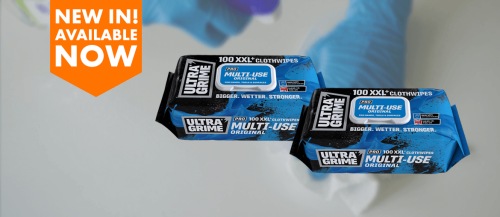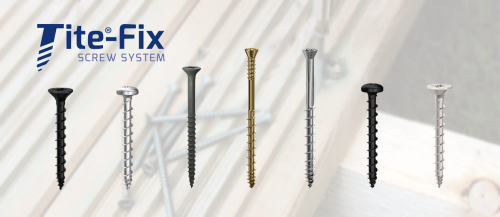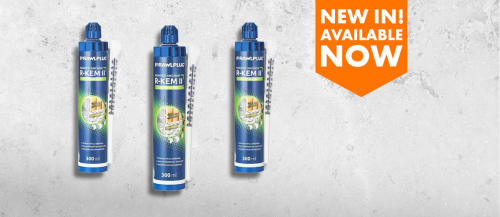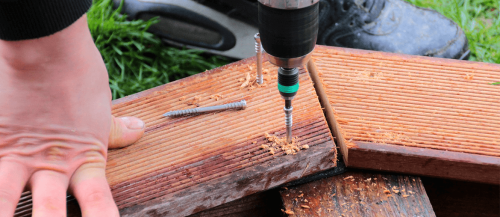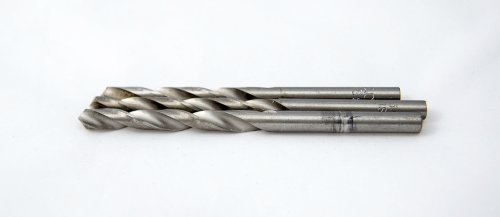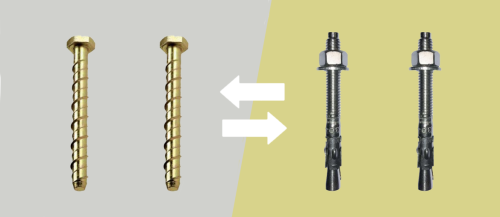This site uses cookies to help deliver its services and analyse traffic.
What Are Anchor Bolts?
In this blog post, we are going to explore anchor bolts, including different types, uses, and properties to help you make an informed decision when completing your next construction or DIY project!
Anchor bolts are a type of heavy-duty fastener, often used within the construction industry to attach structural elements to concrete or masonry. They are incredibly tough, being able to ‘anchor’ materials deep into more challenging surfaces such as concrete. Their primary function is to provide a solid point of attachment that distributes the weight and tension from the structure into the substrate, ensuring structural integrity and safety. Their applications are numerous and varied, ranging from securing small home-based items to critical components in large-scale constructions.
Types of Anchor Bolts
There are several types of anchor bolts, each designed for specific applications and conditions:
J-Bolts
J-bolts are named for their unique shape, resembling the letter 'J'. The curved end is set into the concrete, offering a secure attachment point. They are often used in building foundations and walls.
Wedge Bolts
Wedge bolts are another type of anchor bolt, which are driven into pre-drilled holes in concrete. When tightened, a wedge is driven up against the sides of the hole, expanding and securing the bolt in place. This type is typically used in heavy-load applications.
Sleeve Bolts
Sleeve bolts consist of a bolt encased in a cylindrical sleeve. When installed in a pre-drilled hole, the bolt is tightened, causing the sleeve to expand against the sides of the hole. Sleeve bolts are useful in applications where the bolt may need to be removed and replaced.
Foundation Bolts
Foundation bolts, also known as L-bolts, are typically embedded into concrete during its pouring. They are often used in large-scale construction projects to secure structural elements to a concrete foundation.
Properties of Anchor Bolts
The material used to produce anchor bolts is usually steel, due to its strength and durability. Depending on the application, these bolts may be manufactured from stainless steel, zinc-coated steel, or even galvanised steel to resist corrosion.
It's important to select the appropriate anchor bolt for each application. Factors such as the weight of the structure, the type and condition of the concrete, and the environmental conditions should all be taken into account.
How to Choose the Right Anchor Bolt
Choosing the right anchor bolt for your project requires understanding your needs. Consider the nature and weight of the load, the material you are working with, and the environment in which the bolt will be used. For example, stainless steel and galvanised anchor bolts are an excellent choice for projects in coastal areas, where salt can accelerate corrosion.
Ideally, when inserting the bolt, the hole should be at least twice as wide as the diameter of the bolt and slightly deeper than its length to ensure a secure fit.
Your chosen anchor bolt should meet the required safety standards and comply with all relevant regulations. If you need some help in choosing the correct type of anchor bolt for your project, please don’t hesitate to get in touch!
Anchor bolts play a vital role in a wide range of construction projects, offering secure and sturdy fastening solutions. By understanding their various types, uses, and properties, you can select the perfect bolt for your specific needs. At BS Fixings, we offer a comprehensive range of high-quality fixing and fastening products, including a variety of anchor bolts from Thunderbolt™, to meet all your construction needs. Contact us today on 03330 117818 for expert advice and guidance on selecting the right anchor bolts for your projects.
Latest from BS Fixings
Banish the Grime in a Swipe: New UltraGrime Pro Multi-Use Clothwipes!
At BS Fixings, we understand that when you’re knee-deep in your trade, the last thing you want to worry about is the mess. That’s why we’re excited to introduce a...
Continue readingIntroducing Tite®-Fix at BS Fixings
BS Fixings is proud to introduce yet another brand to our lineup - Tite®-Fix! This brand offers a range of high-quality screws designed for various applications, from tongue & groove...
Continue readingNew In! Rawlplug’s R-KEM2 Polyester Styrene-Free Resin
We're pleased to share something special with you – the Rawlplug R-KEM2 Polyester Styrene-Free Resin 300ml has just landed at BS Fixings! This ingenious resin is designed for use in...
Continue readingWhich Types of Screw are Best for Outdoor Use?
At BS Fixings, we understand the challenges posed by the great outdoors, especially when it comes to decking, fencing, installing outdoor ironmongery or even assembling garden furniture. That’s why we...
Continue readingHow Do I Choose the Right Size Drill Bit for a Wall Plug?
In this blog, we’re going to tackle another common question we hear in our community – how do I choose the right size drill bit for a wall plug? Choosing...
Continue readingWhat’s the Difference Between an Anchor Bolt and a Through Bolt?
When it comes to securing anything from the lightest of fixtures to the heftiest of machinery, the importance of choosing the right bolt cannot be overlooked. It’s the kind of...
Continue reading
